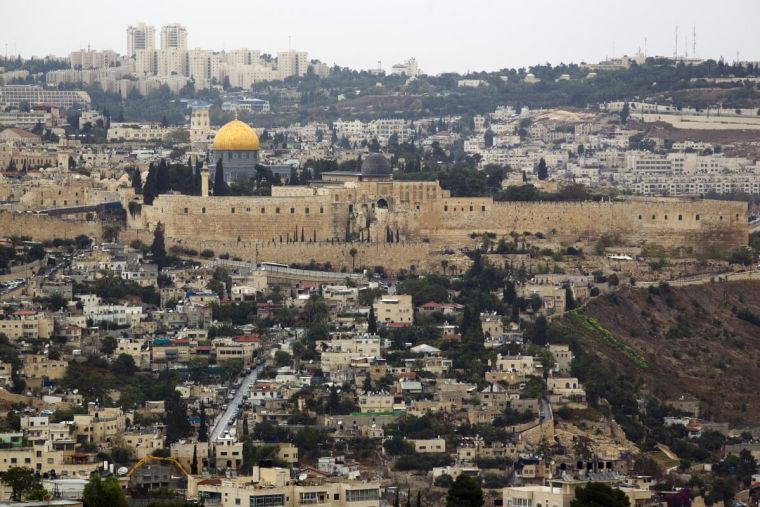Donald Trump And Jerusalem: Our Q & A Explainer

What are the questions?
Donald Trump has pledged to move the US Embassy from Tel Aviv to Jerusalem. Why? And what does this mean?
Why is the status of Jerusalem in the news so much at the moment?
Because during the US presidential election campaign last year, Donald Trump and his team repeatedly made promises relating to Jerusalem and Israel, so there is much speculation about what Trump will do now he's in office.
What exactly did Trump pledge?
In September, Trump delighted Israel's Prime Minister Benjamin Netanyahu by telling him during a lengthy meeting in New York that if he won the presidential election, the US would "recognise Jerusalem as the undivided capital of the State of Israel".
Linked to this, Trump promised to move the US embassy in Israel from Tel Aviv to Jerusalem.
In December, Kellyanne Conway, a spokeswoman for Trump, reiterated in a radio interview that Trump "made it very clear during the campaign" that he wanted to make the move, and that she had "heard him repeat it several times privately, if not publicly".
Later, Netanyahu said that such a move would be "great". He said: "Regarding the idea of opening the US Embassy to Jerusalem, I will respond to this in one word: Great."
Why is moving the embassy so controversial?
While Israel considers Jerusalem its "eternal, undivided capital", the Palestinians regard the east of the city – occupied by Israel in the 1967 Six Day War – to be the capital of any future Palestinian state. Trump's plan arguably appears, at least under a Trump presidency, to rule out a two-state solution during which the agreed division of Jerusalem would be key.
The US, the UN and almost every country in the world currently refuse to accept that Jerusalem is Israel's capital, with most major embassies functioning in the sea-side business capital, Tel Aviv. International consensus is that East Jerusalem is occupied territory, just like the West Bank.
In 1995, the US Congress approved the Jerusalem Embassy Act, which requires that the American embassy be moved from Tel Aviv to Jerusalem. However, successive US presidents – both Democratic and Republican – have exercised a waiver delaying its implementation every six months since on national security grounds, and official US policy does not recognise Jerusalem as Israel's capital.
Israeli officials say that Trump would have the power to enact the embassy law simply by failing to exercise the waiver.
Several US presidents have pledged to move the embassy during their campaigns, only to go back on the promise when hit by the reality of office. Critics are hoping the same will happen with Trump.
How have the Palestinians reacted to the proposal?
Earlier this month, the Palestinian President Mahmoud Abbas said the move could threaten peace in the region.
In December, Mustafa Barghouti, a Palestinian politician, said he was "shocked" after Conway's comments. He added: "If the US takes such a decision, it will not only be violating international law, but violating a unanimously respected international principle that no country can annex another's territory by force."
What's the latest?
Over the weekend, there was speculation in Washington that an announcement would come on Monday, so much so that newspapers in the UK were preparing considerable space for the story yesterday. However, no such announcement has come yet, and the subject reportedly barely came up in a half hour phone call between Trump and Netanyahu on Sunday.
Nonetheless, some Israeli outlets have reported that American architects have already begun planning the move to a new building in west Jerusalem.
Meanwhile, Israel announced just two days after Trump's inauguration a plan for nearly 600 new settlement homes in occupied east Jerusalem, with officials saying that "the rules of the game have changed".
The Jerusalem Post reports that a growing number of Israeli politicians are expected to descend on Washington in the coming months, starting with Netanyahu in February.
Is this all a bit stranger than fiction?
Well, funny you should ask that, because in the hit Netflix series House of Cards, which announced its forthcoming fifth season over the inauguration weekend, the US embassy is indeed in...Jerusalem.
Did Trump get the idea from the drama?
You might well say that. We couldn't possibly comment.











